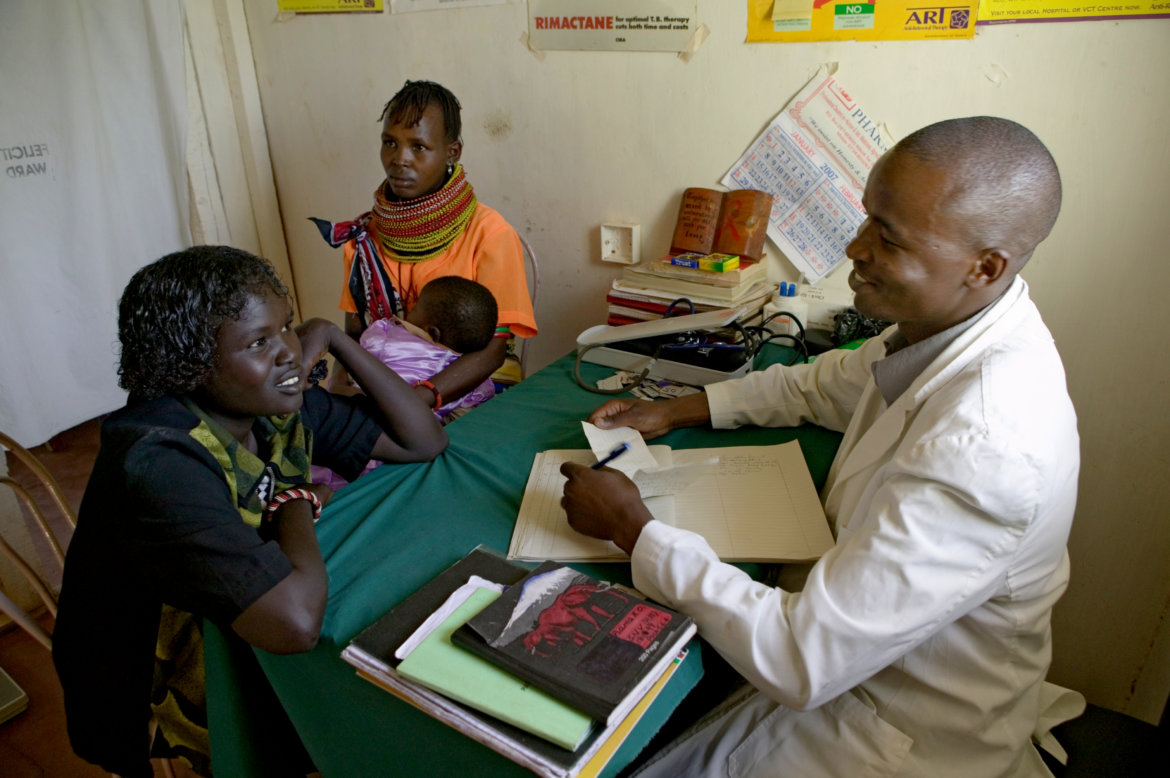We are delighted to announce that iDSI has been awarded $14.5 million from the Bill & Melinda Gates Foundation to extend engagement with low and middle-income countries (LMICs) as they aim to make healthcare investment decisions that reflect the best value for money.
The grant, which will cover five years, represents a significant uplift to the funding granted to iDSI in 2015 and will allow us to continue working relationships with policymakers and healthcare payers to understand and respond to the challenges they face – whether ensuring the financial sustainability of a health insurance fund or fair access to good quality care across public health facilities.
This next phase of iDSI will see stronger emphasis on Sub-Saharan Africa with iDSI’s flagship countries including Kenya and Ghana, where global health funders will be departing and domestic health care spending is on the rise. Additionally, many Sub-Saharan African countries are currently introducing national health insurance or coverage plans and making important decisions about what health services and technologies should be included in Universal Health Coverage (UHC) offerings, where value for money considerations could make a huge difference in health outcomes.
As a result of the renewed funding, iDSI’s global network of expertise is expanding – we’re pleased to report iDSI core partners now include: the Asia Health Technology Assessment consortium which includes the National Health Foundation of Thailand, the Saw Swee Hock School of Public Health, National University of Singapore and Health Intervention and Technology Assessment Program; the Health Economics Research Unit of the KEMRI Wellcome Trust Programme, the Norwegian Institute of Public Health and the Clinton Health Access Initiative, Inc.,in addition to current core partners: the Global Health and Development Group at Imperial College London, the China National Health Development Research Center and the Center for Global Development.
The network endeavours to generate long-term, locally-owned solutions to health care challenges through building capacities for using evidence in policy and clinical decisions. Its impact to date includes influencing policy in eight countries – China, India, Indonesia, Philippines, Vietnam, South Africa, Tanzania, and Ghana – where there has been tangible progress toward national institutions being established to embed value-for-money into decision-making about what medicines, vaccines or other health services should be offered to the population, and how these could be procured in the most cost-effective way. Already iDSI has supported Tanzania to prioritise its Essential Medicines List from 500 to 400 drugs, reducing spending on poor value items and freeing up resources to improve access to the most cost-effective medicines, trained Kenya’s Health Benefits Package Committee on measuring the added value of a new health intervention compared to existing ones, piloted a local quality improvement initiative with hospital staff in Vietnam to reduce inappropriate antibiotic prescribing for pneumonia and brought together more than 100 policy makers, academics and industry representatives working across Sub-Saharan Africa for a special event to share knowledge and best practices.
iDSI Director Kalipso Chalkidou, a Professor of Global Health Practice at Imperial College London who also directs the Global Health program at the Center for Global Development, said: “With government and aid budgets under pressure, many developing countries are facing declines in health funding and are going to have to make difficult choices. Policymakers’ decisions about what health care to make available and at what cost can be a life or death decision for people across the developing world. We will inform these critical decisions with data and evidence that maps out how best to spend limited funds to improve outcomes and save lives.”
Chinese, Thai, Norwegian, and British governments have backed iDSI, which also receives funding from the Department for International Development, the UK government department responsible for administering overseas aid.
Amanda Glassman, Chief Operating Officer at the Center for Global Development, said: “Previous health care decision making in developing countries has too often been driven by inertia and lobbying rather than science, economics, ethics and the public interest. We want to change that.”
Ira C. Magaziner, Chief Executive Officer of the Clinton Health Access Initiative Inc (CHAI), said: “Low- and middle-income countries are set to make great strides toward universal health coverage in the coming years, ensuring that all people have access to affordable and quality care. CHAI works with governments that are implementing health financing and service delivery reforms to meet this goal. We are excited to deepen our collaboration with the iDSI network to help partner governments set health care priorities, drawing on iDSI’s expertise and years of experience across different country settings.”
Trygve Ottersen, Executive Director at the Norwegian Institute of Public Health, said: “Without proper support, it is hard for decision-makers to navigate within the broad and ambitious agenda of the Sustainable Development Goals and to make evidence-informed choices that are both fair and efficient. iDSI serves as a unique platform for supporting the most critical choices on the path to UHC and the Institute is delighted to be part of this partnership.”
Professor Teo Yik Ying, Dean of the Saw Swee Hock School of Public Health at the National University of Singapore, said: “The Saw Swee Hock School of Public Health at the National University of Singapore is delighted to be a contributing partner to iDSI. The mission of iDSI to support evidence-based decision making in global public health is aligned to the mission of the School, with the aim of translating research discoveries to improve the health of global communities.”
Dr Somsak Chunharas, from the National Health Foundation of Thailand, said: “Being an organisation promoting evidence-based policy and system development in Thailand for the last 30 years, the National Health Foundation looks forward to this opportunity to share and learn from various countries’ context in establishing the mechanism and tools for evidence-informed policy.”
iDSI was borne out of the recommendations of the Center for Global Development’s Priority-Setting Institutions for Global Health Working Group in 2012.
